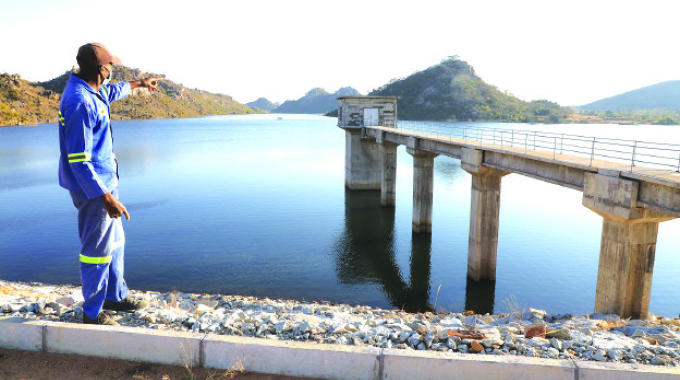The problem of our land reform
Amai Jukwa
Any policy conversation on land must begin by accepting that land belongs to the people. This is a sacrosanct principle.
One could claim custody perhaps but certainly not ownership in the sense of absolute freehold proprietorship. On this basis, those who are afforded the privilege to be custodians of land must accept that this privilege comes with an implicit responsibility to the wider community.
The nature of this responsibility takes various forms. For instance, those in possession of arable land would be expected to produce. Not only so, they would also be expected to conduct their affairs in a manner that demonstrates an appreciation for the supremacy of national interest.
An example would be helpful: The public would protest quite loudly if local farmers formed a cartel and connived to exploit the import duty regime to inflate prices domestically while exporting at a fraction of the price.
Productivity is foremost in our expectations because its benefits extend to the wider community in an obvious way. Productive land creates employment, pays tax, contributes toward food security, gives birth to downstream industries and could possibly result in exports. It is perhaps the most important obligation with which landowners must be burdened. The Government has failed to impose this burden. It is not so much that Ggovernment efforts have failed – Government has made no such effort. There is absolutely nothing in the way of policy to compel production.
While Government has bellowed endless threats against idle land there has been no policy bite to accompany this rhetorical bark. A considerable amount of land redistributed under the Land Reform Programme remains unproductive. The same was true under the white farmers. Some are not persuaded by this point and wrongly imagine that this lack of productivity is a function of incompetent black farmers. This is not the case and a look next-door makes my point. Only 3 percent of South Africa’s farming land produces all the food consumed in that country.
The problem with our land reform is that it has limited itself to racial redistribution. While the removal of the British settler farmers is admirable, this does not go far enough. The next step is to ensure that land is held for the benefit of all. This is currently not the case. What we have is a new elite. We previously had a white elite of 6 000 farmers. We have simply replaced that with a new elite of 240 000 black farmers, about 1.8 percent of the population. This is problematic in a number of ways but that conversation is for another day.
If we do not address the issue of extending benefits to the wider community in such a way that all Zimbabweans feel their land is being used for national gain we are going to see the rise of resentment against the 240 000 landowners since they too, like the white farmers, did not pay for the land they now possess. It is just a matter of time.
The status quo is dangerously unsustainable and leaves the new landowners vulnerable to opportunistic political agitators who will most certainly appear. It is not a matter of if but when people will start grumbling, read Murphy’s Law. The absence of a social contract between the new farmers and the wider population puts them in a precarious position. It would be naïve to believe that one can acquire over a thousand hectares of land completely free of charge and expect the next generation (or political order) to honour that title in the absence of a beneficial and discernible social contract. It is for this reason that legal thinkers arrived at the concept of consideration because agreements reached without it are morally unsustainable.
I am not suggesting that land must be shared equitably amongst all. That is impractical and would likely diminish the sum national gain. Instead I am advocating a land policy that compels production in such a way as delivers national benefit.
It is not enough to hand over the nation’s land to 1,8 percent of the population if those beneficiaries do not utilise that land in a manner that benefits the nation at large. It is outrageous that those currently in possession of land can choose not to produce if they so wish. This should not be so given that they are merely custodians of a national resource. The transaction should rightly read, “Give me land and I will produce.” Production then becomes the consideration given in return for land thereby cementing a sustainable social contract.
Perhaps inadvertently, the Government may have stumbled onto the solution. A few weeks back it was announced that A1 and A2 beneficiaries of the Land Reform Programme would now be charged a levy per hectare of land under their care.
The introduction of this levy is significant because it introduces an essential element that has been missing in our land policy — the fear of loss. Having invested nothing, farmers had no reason to utilise their land. It was never imperative. This is why we saw some resettled farmers selling fertiliser, fuel and other inputs supplied by the Government on the parallel market. The moment you introduce the fear of loss all landowners will be compelled to manage their affairs in a prudent manner to avoid such loss. We park only at designated spots not because we are considerate and well-mannered citizens but because we fear financial loss in the way of a ticket or clamping.
In this particular case Government has introduced the risk of financial loss. The farmer in possession of 1 000 hectares of land risks losing US$1 000 every year if he makes no use of his land. The levy is currently set at US$1 per hectare.
If correctly implemented this levy could lead to a significant increase in productivity. The problem is the seemingly arbitrary nature of this levy. It seems ridiculously insufficient (assuming the objective is to spur on productivity) to charge a levy of US$1 per hectare. An individual in possession of 500 hectares of land could easily afford to pay US$500 per year even if the land was not productive. To be effective, the levy must be such that the losses are significant.
The level at which such a levy is set should not be arbitrary. A number of factors must be put into consideration. The first is that our different regions afford different returns per hectare. While a farmer in Region 1 can enjoy significant returns per hectare the same is not true for a farmer in Region 5. Charging a blanket levy suggests that a hectare of land in the Sahara is equal in value to a hectare of land in the fertile Congo. Such a position ignores the very real additional cost of doing business in ungenerous soils and hostile climates.
Ideally, the Government should have contracted competent consultants to ascertain the average return that can be expected from a hectare of land in each of the natural regions. A fraction of this would be imposed as the levy. For example, if it were the case that a farmer in Region 1 could expect a return of at least US$3000 per hectare from a reasonable use of his land then a yearly levy of US$30 per hectare would not be unreasonable. A farmer in possession of 1 000 hectares of land would face an uncomfortable yearly bill of US$30 000.
Although preferable to the current rate, I accept that US$30 per hectare is equally arbitrary; it is simply to make a point.
The benefits of such a tax would be immediate. Those in possession of land would be compelled (by the fear of financial loss) to find ways of ensuring their land was producing enough to at least cover their tax obligations. Some would find it beneficial to sublet unproductive parts of their land. Those unwilling to bear this financial risk would approach Government to reduce the size of the land they hold. The surrendered land would be given to those willing to bear the levy. Naturally, those willing to bear the levy would invariably be those with the intention and capacity to put each hectare under production.
However, one must proceed with caution. Such a tax would need to jump two important hurdles. The first is that it should be so high as to discourage the possession of idle land. The rate at which it must be set should be so high as to make it prohibitive to simply sit on land. The next hurdle should constrain the first.
Such a tax must not be so high as to discourage would-be farmers of limited resources. At my suggested rate a farmer with 100 hectares would pay US$3 000 per year. This is less than the yearly cost of renting a house in a high-density suburb. It cannot be said to be particularly onerous. In fact many Zimbabweans would jump at the chance to rent a hundred hectares of land for that amount. This suggests that the current rate of US$1 per hectare is poorly considered.
The socialist position (I would hope we are not too far evolved) has always been that land is a public resource from which public benefits must accrue. The modern interpretation of public benefit is invariably taxes, employment and a general contribution to the economy.
Doubtless, we will always have to endure the ugly compromise in which only an elite minority owns land. In return for that compromise we are entitled to enjoy significant public benefits. This can only be achieved by building a rigorous framework that compels landowners to make their land productive. I am persuaded that the linchpin of any such framework is the fear of financial loss.
Ndatenda, ndini muchembere wenyu Amai Jukwa.









Comments